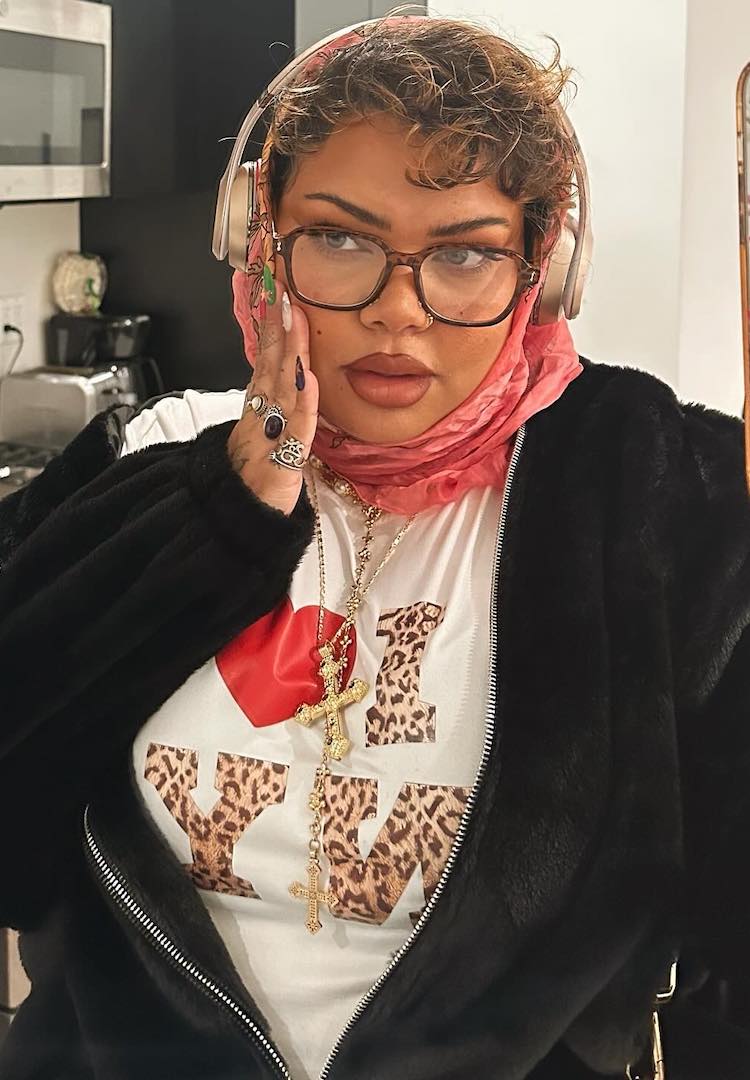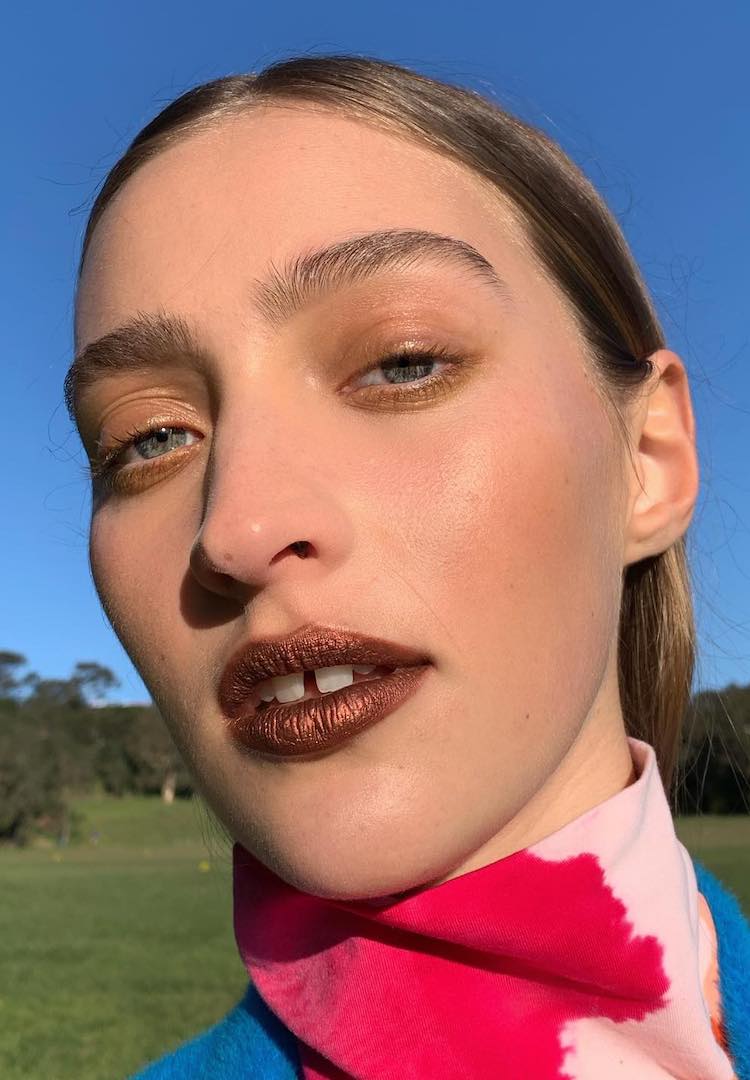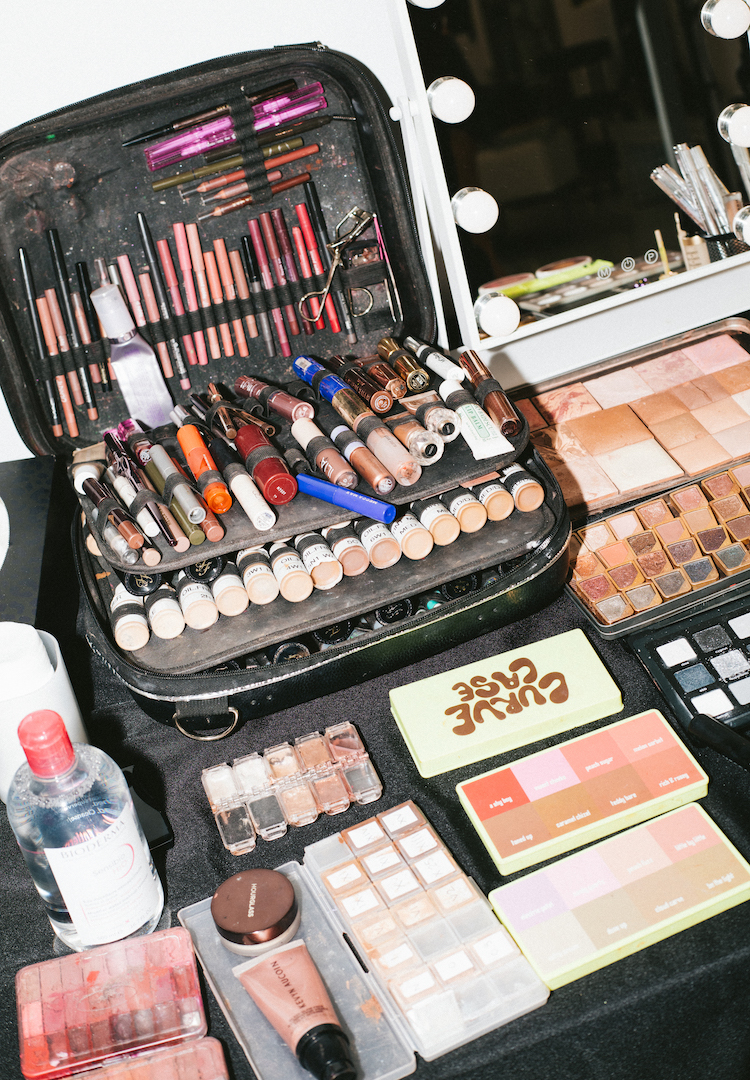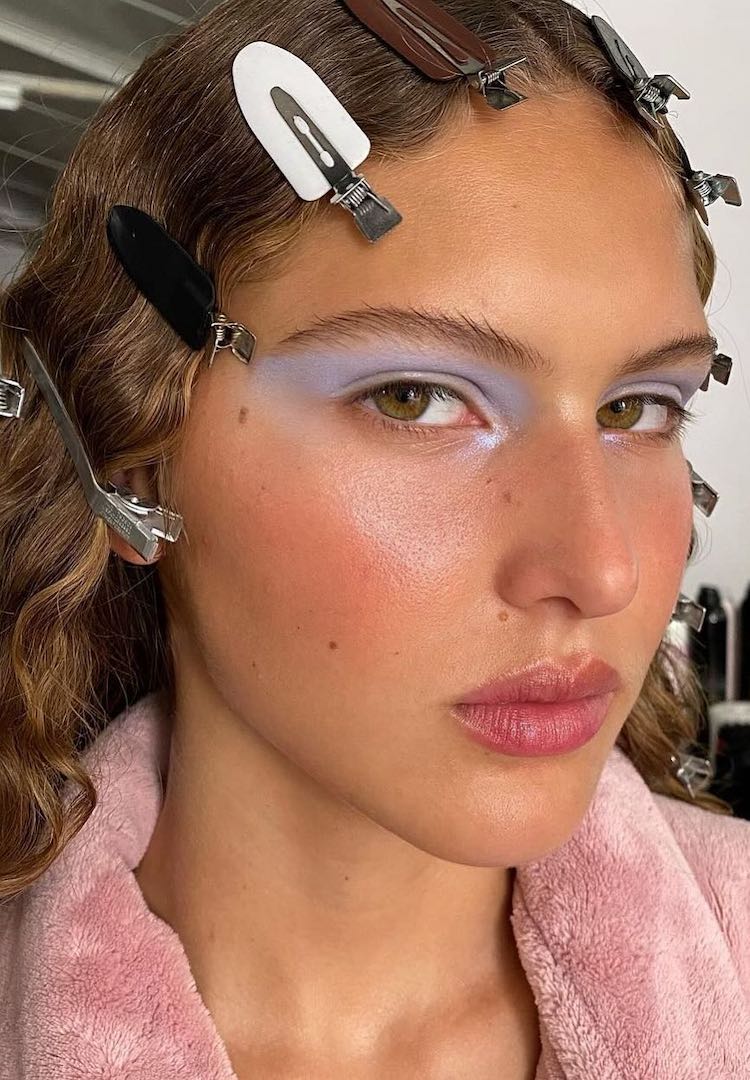Why you should probably clean your makeup brushes right now
as told to daisy henry
Everything you need to know about cleaning your brushes, according to a makeup artist.
Depending how you approach it, makeup can be an incredibly fun tool for self-expression. I’m not so convinced you could make the same case for cleaning makeup brushes. For me, it always feels like a chore, one I can easily trick myself into avoiding. Next time, I tell myself.
When I admitted my ways to FJ’s Features Editor, Lara, who’s also a professional makeup artist of ten years, I was given a stern word. Later that night, I was at my sink cleaning every brush I owned.
Want to snoop inside the beauty regimes of other creatives? Head here.
Ever curious to learn about the habits of others, we polled Fashion Journal readers on Instagram on how often they wash their makeup brushes. More than half of you admitted you never did, 37 per cent said every month or so, and less than 10 per cent said once a week. So I’m not the only one who’s never taken a cleaning product to a brush before.
“I’m a bit grossed out by the poll, but I’m not too surprised,” Lara tells me. “I’m always shocked when I see the state of my friend’s makeup bags, and they’re using a crumbling makeup sponge or a cheek brush that has a whole bronzer’s worth of powder living in it.”
Clearly, many of you need to follow the same words of advice I did. So below, Lara talks us through exactly how to properly clean makeup brushes, and the dangers of leaving them to rot away.
How often should you wash makeup brushes?
As a makeup artist, Lara says she cleans her brushes after every job, and deep-cleans her personal brushes every fortnight. “Brushes you use for powders only, like fluffy eyeshadow brushes or a blush brush, you can get away with ‘dry-cleaning’ once a week, which is super easy,” she explains.
The brushes you should deep-clean more regularly include concealer and foundation brushes, as well as any others you use for cream or liquid bronzers and blush. “Moisture is a breeding ground for bacteria, so you don’t want liquid products sitting around for too long!”
Lara suggests cleaning these brushes either once a week, or once a fortnight. “Do it on a Sunday, when you have a hair mask or sheet mask on and make it part of your routine.”
What happens if you don’t wash your makeup brushes?
Lara doesn’t hesitate to tell me that yes, there most definitely are side-effects to never cleaning your makeup brushes. “Not washing them properly will cause bacteria to build up and this can transfer to your skin, which can lead to breakouts… If you’re not going to clean your brushes, just use your (clean) fingers instead.”
Leaving your brush to build up with product is also bad for the bristles, she says. Not only will it cause shedding, but it means you likely won’t get the best results when applying makeup.
How do you wash makeup brushes properly?
For a quick, ‘dry cleanse’, Lara suggests spraying some brush cleaner or isopropyl alcohol on a folded paper towel, then swiping the brush back and forth to remove any product. “I do this every couple of days for my concealer brushes and eyeshadow brushes to remove pigment and santise,” she tells me.
“To deep cleanse any synthetic-bristle brushes, like my foundation, concealer or lip brushes, I start by wiping off excess product with a paper towel and a squirt of cleansing oil. This helps loosen up any stubborn build-up. However, if you’re washing natural hair brushes, or ones you use only for powers (like eyeshadow), you can skip this step.”
Then, take your brushes to the sink, grab some soap or baby shampoo (fragrance-free is best) and put on a textured rubber kitchen glove. Using warm, not hot, water, wet your brushes under the tap, making sure you angle them downwards, so the water isn’t travelling into the base. “This can cause the glue to break down,” Lara warns.
From there, add some soap to your hand with the glove (keeping in mind, less is always more) and gently swirl the bristles back and forth. Rinse and repeat this process until the water runs clear. After that, gently squeeze out the excess water and place the clean brushes down on a clean towel.
“Once you’ve done them all, transfer your brushes on the towel to a sunny spot, or lay them over the edge of a bench to properly dry overnight.”
What should you use to clean makeup brushes?
According to Lara, you can skip the fancy brush cleaner at the makeup store and opt for something far cheaper. “A kitchen glove and bar of Sard does just as good a job. I don’t spend $30 on MAC brush cleaner, I buy the $6 green spritz bottles of iso alcohol from Chemist Warehouse that have a cartoon crocodile on the label.”
How often should you replace your makeup brushes?
“There’s no expiration date. I’ve had some of my original MAC ones (back when they used to be handmade, not machine made) for over ten years and they’re still going strong,” Lara says. “If the hairs are shedding like crazy, or the bristles are getting bald and feeling rough, it’s time to replace them.”
Keep up with Lara here.













